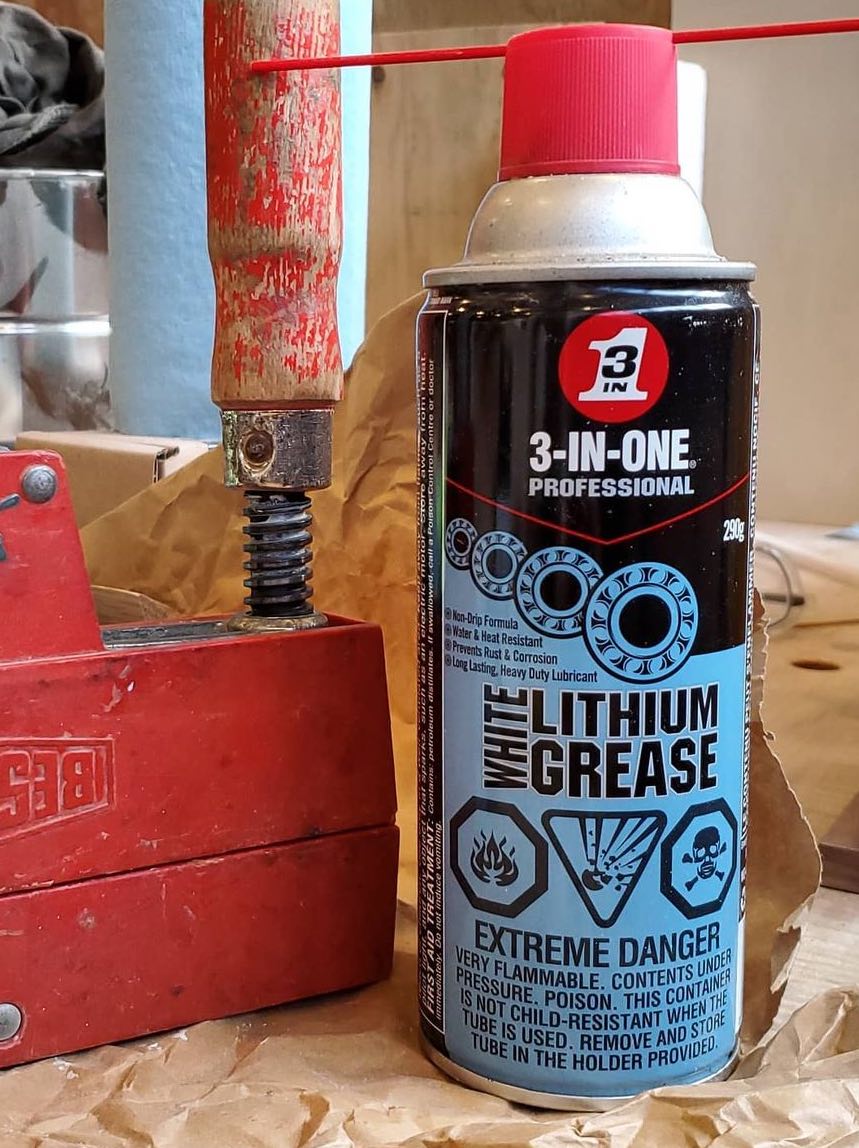In the world of industrial maintenance and mechanical applications, the choice of lubricant can significantly impact the efficiency, performance, and longevity of equipment. Among the variety of lubricants available in today’s market, lithium and silicone grease are two prominent types that are widely used in various industries due to their unique properties. In this comprehensive article we will delve deeply into these two popular types of grease — dissecting their characteristics, primary uses, advantages, drawbacks and finally making a head-to-head comparison to help you discern which one would be more suitable for your specific application needs. The impetus behind this detailed comparison is to provide professional engineers, technicians, and hobbyists an insightful understanding that could help them make informed decisions while choosing between lithium and silicone grease for their respective applications.
 Characteristics of Lithium Grease
Characteristics of Lithium Grease
Lithium grease is a popular lubricant choice known for its versatility and effectiveness in a wide range of applications. Primarily composed of lithium soap mixed with mineral oils, this type of grease is renowned for its high resistance to water and its ability to withstand a variety of temperatures, making it ideal for automotive and industrial use. One of the standout features of lithium grease is its excellent metal-to-metal lubrication, which reduces friction and wear in moving parts. Additionally, lithium grease has a good load-bearing capacity, which is crucial in high-pressure environments. Its durability and stability under heavy use and varying conditions are why it’s often preferred for use in wheel bearings, chassis, and other automotive applications. Despite its many advantages, lithium grease may not be suitable for all situations, especially where plastic and rubber components are involved, as it can cause damage to these materials.
Characteristics of Silicone Grease
Silicone grease, on the other hand, is distinguished by its unique composition – primarily consisting of silicone oil with a thickening agent. This type of grease is particularly known for its outstanding thermal stability and excellent water-resistant properties. Silicone grease operates effectively in both low and high-temperature extremes, maintaining its consistency without getting overly hard or melting away. It’s particularly beneficial in applications where rubber and plastic compatibility is required, as it does not degrade these materials. Common uses include lubricating O-rings, gaskets, and seals in automotive, plumbing, and electrical applications. Its non-reactivity and inertness make it an excellent choice in environments where chemical resistance is necessary. However, silicone grease is not typically recommended for heavy load-bearing applications due to its lower mechanical stability compared to lithium grease.
Key Differences Between Lithium and Silicone Greases
The primary distinction between lithium and silicone greases lies in their composition and, consequently, their application suitability. Lithium grease’s superior load-bearing capacity and metal-to-metal lubrication efficiency make it a go-to choice for automotive mechanical parts, especially in areas subject to high pressure and varying temperatures. Its ability to maintain structural integrity under stress is a significant advantage in heavy-duty applications. Conversely, silicone grease stands out for its exceptional performance in extreme temperatures and its compatibility with various materials, such as rubber and plastics. This makes it ideal for electrical and plumbing applications, where its non-conductive and moisture-resistant properties are crucial. Additionally, silicone grease’s chemical inertness makes it suitable for environments where other lubricants might react adversely. Understanding these differences is key to choosing the right grease for specific applications, ensuring optimal performance and longevity of the components.
| Feature/Aspect | Lithium Grease | Silicone Grease |
|---|---|---|
|
Base Composition |
Lithium soap mixed with mineral oils |
Silicone oil with a thickening agent |
|
Temperature Range |
Good performance in moderate to high temperatures | Excellent performance in extreme temperatures |
|
Water Resistance |
High resistance to water |
Outstanding water-resistant properties |
|
Load-Bearing Capacity |
Excellent for high-pressure applications |
Better suited for light to moderate loads |
|
Material Compatibility |
Ideal for metal-to-metal applications |
Compatible with rubber and plastic components |
| Typical Applications | Wheel bearings, chassis in automotive |
O-rings, gaskets, seals in electrical/plumbing |
|
Durability |
Highly durable under stress and varying conditions |
Maintains consistency in harsh temperature ranges |
| Chemical Reactivity |
Reactive with certain plastics and rubber |
Non-reactive and chemically inert |
 How to Choose Between Lithium and Silicone Grease
How to Choose Between Lithium and Silicone Grease
Choosing between lithium and silicone grease depends largely on the specific requirements of the application. Consider factors like the operating temperature range, the types of materials involved (metal, plastic, rubber), and the environmental conditions (presence of water, chemicals). For automotive and industrial applications involving high loads and metal components, lithium grease is often the better option. Conversely, for electrical, plumbing, or applications requiring material compatibility with plastics and rubber, silicone grease is preferable. Additionally, it’s crucial to consider the guidelines and specifications provided by the manufacturer for the equipment that is undergoing maintenance. Ultimately, the right choice will enhance the performance and extend the lifespan of the components being lubricated.
Enhancing your Jeep’s performance? Don’t overlook the significance of choosing the Best Ball Joints for Jeep, a decision that can greatly impact your vehicle’s handling and longevity.
Conclusion
In summary, lithium and silicone greases each possess unique benefits and optimal scenarios for use, distinguishing them in their respective applications. Understanding the distinct features and contrasts between them is essential for a well-informed choice. Whether it’s the heavy-duty lubrication needs of an automobile or the specialized requirements of electrical and plumbing systems, selecting the appropriate grease can significantly impact the functionality and durability of the equipment. By considering the specific demands of your application and the properties of each type of grease, you can ensure that you choose the most effective lubricant for your needs.

 Characteristics of Lithium Grease
Characteristics of Lithium Grease